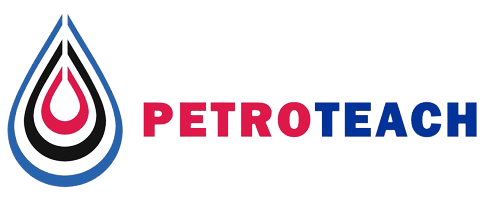DAT 600
Advanced Petroleum Data Analytics
This introductory course focuses on petroleum data types (such as field data, lab data, and simulated data) and data analytics tools available today in the context of these data types.


This introductory course focuses on petroleum data types (such as field data, lab data, and simulated data) and data analytics tools available today in the context of these data types.

| Code | Date | Location | price (€)* |
|---|---|---|---|
| DAT 600 | 8 - 9 May 2025 | Online | 850 |
| DAT 600 | 2 - 3 Jul 2025 | Online | 850 |
| DAT 600 | 9 - 10 Apr 2025 | Stavanger | 1990 |
| DAT 600 | 4 - 5 Jun 2025 | Abu Dhabi | 1990 |
* Prices are subject to VAT and local terms. Ph.D. students, groups (≥ 3 persons) and early bird registrants (8 weeks in advance) are entitled to a DISCOUNT!
This introductory course focuses on petroleum data types (such as field data, lab data, and simulated data) and data analytics tools available today in the context of these data types. During 2 days of the course participants will learn about AI algorithms that have been successfully applied to a variety of petroleum engineering problems, machine learning models and their hybridization with fuzzy logic, and some information theory techniques that you can adopt for your engineering, characterization or decision-making problems. This two-day course provides broad and yet sufficiently detailed introduction into petroleum data analytics and puts all tools in the context of data that we routinely deal with in petroleum engineering. The course covers several Artificial Intelligence algorithms (evolutionary programming and swarm intelligence), Machine Learning techniques (various types of neural networks, SVM), introduction to Fuzzy Logic and its uses in combination with ML techniques, and information theory approaches (such as Akaike Information Criterion). All algorithms are presented from the conceptual standpoint and illustrated with multiple examples from the petroleum E&P industry.
o Introduction and Course Agenda
o Basic types of petroleum data
o Short group exercise in identifying various data types
o AI algorithms introduction
o AI: Evolutionary computation algorithms with application examples
o Exercise to apply EC to an E&P problem
o AI: Swarm Intelligence algorithms with application examples
o Exercise to apply SI to an E&P problem
o Machine learning and most popular ML models. Application examples from E&P industry
o Fuzzy logic and its hybridization with ML models, examples
o Information theory and Akaike Information Criterion uses in
petroleum E&P problems
o Discussion
o Adjournment

Dr. Tatyana Plaksina is an award-winning assistant professor of petroleum engineering at the Department of Chemical and Petroleum Engineering at University of Calgary, AB, Canada. Research interests of Dr. Plaksina include geothermal energy exploitation and numerical modeling of CO2 sequestration (subsurface fluid dynamics and monitoring), reservoir engineering of conventional and unconventional oil and gas assets, petroleum data analytics, production data analysis (including rate transient analysis (RTA) and decline curve analysis (DCA)), petroleum economics, risk analysis, and petroleum engineering education.
This course is designed for practicing petroleum engineers, geologists, geoscientists, and petroleum decision makers who would like to familiarize themselves with the most popular data analytics tools and learn about value that they add to business, operational workflows, and decision making.
o Beginner to Intermediate
Some of the learning objectives of this course include:
o Familiarize and learn to distinguish various basic types of petroleum data
o Learn to match various data types and data analytics tools and from this standpoint choose appropriate tools for outstanding engineering problems
o Learn to distinguish various data analytics tools and familiarize with their conceptual structure
o Consider multiple popular AI, ML, fuzzy logic, and information theory algorithms and gain deeper understanding of how they were applied to solve various engineering problems (though presented examples and discussion).
Registration is now OPEN!
* Prices are subject to VAT and local terms. Ph.D. students, groups (≥ 3 persons) and early bird registrants (8 weeks in advance) are entitled to a DISCOUNT!
For more details and registration please send email to: register@petro-teach.com
Would you like a PetroTeach training course delivered at a time or location to suit you?
click for request in house